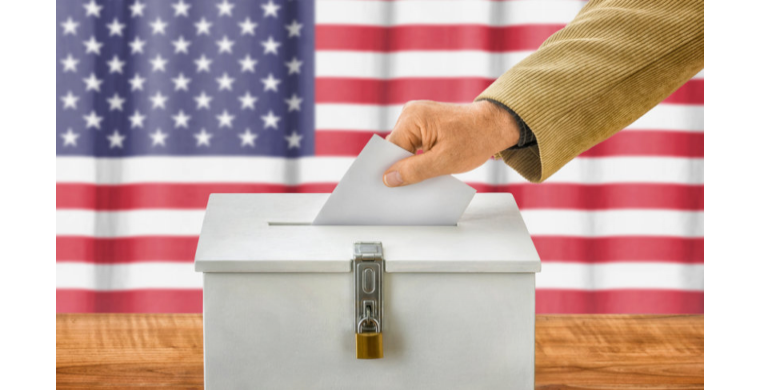32 million self-identified Christians who regularly attend a church might sit out the 2024 presidential election, an Arizona Christian University survey found
By Calvin Freiburger
LifeSiteNews
October 10, 2024
With just one month to go until a presidential election with major ramifications for life, gender issues, and religious freedom, a new survey projects that a decisive share of religious Americans will not turn out to vote, which, if true, could be disastrous for former President and current Republican nominee Donald Trump's hopes of returning to the White House.
Released October 7, the report by Arizona Christian University's (ACU) Cultural Research Center (CRC) is based on a survey of 3,000 voting age adults. It found that 49% of respondents indicated they are not likely to vote in November, which when applied to the religious breakdown of the population means "as many as 104 million people of faith are unlikely to vote in this upcoming election--and among those, 32 million self-identified Christians who regularly attend church."
Sixty-eight percent of respondents suggested they were not voting simply due to a lack of interest, but 57% said they disliked all of the major options and 55% said none of the candidates reflected the views most important to them. Notably, 48% said they believe the election's outcome will be "rigged" anyway.
As with the general public, the top issue priorities of regular Christian churchgoers are the economy and mass immigration, although 41% also identify abortion as the most influential factor of who they support.
ACU research director Dr. George Barna, who led the survey, put the prospect of 32 million practicing Christians in perspective by harkening back to the previous election between Trump and current President Joe Biden.
"In 2020, the margins of victory were a combined 587,000 votes or so in nine battleground states," he said. "Cumulatively, they represented about one-fifth of the Electoral College votes--104 out of the 538 electoral votes. You only need 270 electoral votes to win the race, yet an average gap of just 60,000 votes in each of those states determined the winner of nearly 40 percent of the total electoral votes needed to win."
"In that context, the 32 million Christians sitting in the pews each week who refuse to vote are a gamechanger," he said. "It's low hanging fruit for pastors as they try to motivate those congregants to carry out their civic duty and honor God through their influence for things that matter in our culture."
Past research has found that practicing Christians are more likely to vote than the public at large, and that they broke for Trump in previous elections, so a significant decrease in their turnout this year could be disastrous for Trump, who has been testing the durability of the relationship between the Republican Party and its religious base.
Trump now opposes further federal legislation on abortion, supports letting abortion pills be distributed by mail, has criticized states for overly "harsh" abortion bans, and even declared he would veto an abortion ban if it reached his desk. Through these stances, he has taken credit for making the GOP "less radical" on abortion, including by having the national Republican Party platform rewritten to reflect his more liberal position.
Trump's left-wing turn on abortion has anguished many pro-lifers, who were key to his original 2016 victory, prompting debate among many about whether to vote or abstain in the November election.
At the same time, however, Trump's continued difference from Democrats on issues such as "transitioning" gender-confused minors, parental rights, religious freedom, and immigration and Democrats' continued support for a comprehensive far-left policy agenda are expected to keep most conservatives and Republicans resigned to accepting him as preferable.
Trump's opponent, Democratic Vice President Kamala Harris, is running on an absolutist abortion-on-demand platform that includes taxpayer funding of abortion, opposing any and all limits on the practice, signing a law forcing all 50 states to permit abortion again, and most recently abolishing the Senate filibuster to get such a law to her desk. In speeches, she has taken to promoting abortion as normal and to be committed for whatever reason a woman wants, such as disposing of a child that would interfere with her career plans.
Harris currently leads Trump by 2% in RealClearPolitics' popular vote polling average and by about 3% according to RaceToTheWH, but margins remain extremely close in the swing states that will decide the Electoral College outcome, thanks in large part to Harris's association with, and refusal to distance herself from, the Biden administration and its economy and border record.














